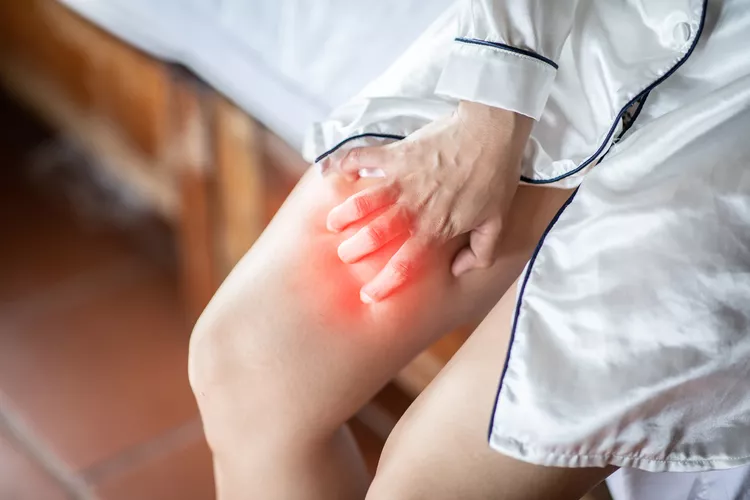
Top 20 Remedies for Relieving Allergies and Itching Under Arms, Legs, and Breasts
Introduction
Skin allergies and itching under the arms, legs, and breasts can be uncomfortable and irritating. They can be caused by a variety of factors, including heat, sweat, friction, allergies, and infections. This guide provides 20 effective remedies to relieve itching and soothe irritated skin naturally. Each remedy is easy to use and can help provide quick relief.
1. Aloe Vera Gel
- How to Use: Apply pure aloe vera gel directly to the affected areas. Aloe vera has anti-inflammatory and cooling properties that can help soothe itching and reduce redness.
2. Coconut Oil
- How to Use: Gently massage virgin coconut oil into the itchy areas. Coconut oil moisturizes the skin and has antimicrobial properties that can help prevent infections.
3. Oatmeal Bath
- How to Use: Add a cup of colloidal oatmeal to a warm bath and soak for 15-20 minutes. Oatmeal has soothing properties that can help relieve itching and calm irritated skin.
4. Baking Soda Paste
- How to Use: Mix baking soda with water to form a paste. Apply the paste to the itchy areas and leave it on for 10-15 minutes before rinsing off. Baking soda helps neutralize irritants and reduce itching.
5. Apple Cider Vinegar
- How to Use: Dilute apple cider vinegar with equal parts water and apply it to the affected areas using a cotton ball. Apple cider vinegar has antimicrobial properties and can help balance the skin’s pH.
6. Tea Tree Oil
- How to Use: Dilute tea tree oil with a carrier oil (like coconut oil) and apply it to the itchy areas. Tea tree oil has antiseptic and anti-inflammatory properties that can help reduce itching and prevent infections.
7. Calamine Lotion
- How to Use: Apply calamine lotion to the affected areas. Calamine lotion has a cooling effect and helps relieve itching and irritation.
8. Cold Compress
- How to Use: Apply a cold compress or an ice pack wrapped in a cloth to the itchy areas for 10-15 minutes. Cold compresses help numb the area and reduce itching and inflammation.
9. Chamomile Tea
- How to Use: Brew chamomile tea, let it cool, and apply it to the affected areas using a clean cloth. Chamomile has anti-inflammatory and soothing properties that can help relieve itching.
10. Neem Oil
- How to Use: Apply neem oil directly to the itchy areas. Neem oil has anti-inflammatory, antibacterial, and antifungal properties that can help treat skin irritations and allergies.
11. Honey
- How to Use: Apply raw honey to the affected areas and leave it on for 20-30 minutes before rinsing off. Honey has antibacterial properties and helps soothe and moisturize the skin.
12. Peppermint Oil
- How to Use: Dilute peppermint oil with a carrier oil and apply it to the itchy areas. Peppermint oil has a cooling effect that can help relieve itching and discomfort.
13. Hydrocortisone Cream
- How to Use: Apply a small amount of over-the-counter hydrocortisone cream to the affected areas. Hydrocortisone cream helps reduce inflammation and itching.
14. Yogurt
- How to Use: Apply plain yogurt to the itchy areas and leave it on for 20 minutes before rinsing off. Yogurt contains probiotics and has soothing properties that can help relieve itching.
15. Lemon Juice
- How to Use: Apply diluted lemon juice (1 part lemon juice to 2 parts water) to the affected areas. Lemon juice has antiseptic properties and can help reduce itching, but it may sting on open wounds or sensitive skin.
16. Turmeric Paste
- How to Use: Mix turmeric powder with water to form a paste and apply it to the itchy areas. Turmeric has anti-inflammatory and antimicrobial properties that can help soothe skin and reduce itching.
17. Cucumber Slices
- How to Use: Place cold cucumber slices on the itchy areas. Cucumbers have cooling and soothing properties that can help reduce itching and irritation.
18. Witch Hazel
- How to Use: Apply witch hazel to the affected areas using a cotton ball. Witch hazel is an astringent that helps reduce inflammation and soothe irritated skin.
19. Olive Oil
- How to Use: Gently massage extra virgin olive oil into the itchy areas. Olive oil moisturizes the skin and has anti-inflammatory properties.
20. Basil Leaves
- How to Use: Crush fresh basil leaves to extract the juice and apply it to the affected areas. Basil contains eugenol, which has anti-inflammatory and soothing properties that can help relieve itching.


Additional Tips for Preventing and Managing Itching
- Keep the Skin Dry:
- Moisture can worsen itching and irritation. Use a soft towel to gently pat the skin dry, especially after bathing or sweating.
- Wear Loose Clothing:
- Tight clothing can cause friction and exacerbate itching. Opt for loose, breathable fabrics like cotton to reduce irritation.
- Avoid Harsh Soaps:
- Use mild, fragrance-free soaps and cleansers to avoid further irritation. Harsh chemicals can strip the skin of its natural oils and worsen itching.
- Stay Hydrated:
- Drink plenty of water to keep your skin hydrated from within. Proper hydration helps maintain skin elasticity and reduces dryness.
- Moisturize Regularly:
- Apply a gentle, fragrance-free moisturizer to keep the skin hydrated and prevent itching. Moisturize immediately after bathing to lock in moisture.
- Avoid Scratching:
- Scratching can worsen the itching and lead to infections. Try to resist the urge to scratch and use the remedies listed above to soothe the skin.
- Identify Triggers:
- Pay attention to potential triggers that cause your skin to itch, such as certain foods, fabrics, or environmental factors. Avoiding these triggers can help prevent flare-ups.
- Consult a Doctor:
- If the itching persists or worsens, consult a healthcare professional. They can provide a proper diagnosis and recommend appropriate treatments.
Conclusion
Itching and allergies under the arms, legs, and breasts can be uncomfortable, but many natural remedies can help soothe and relieve the symptoms. By incorporating these remedies into your skincare routine and following the additional tips, you can effectively manage and prevent itching. Remember to stay consistent with the treatments and consult a healthcare professional if necessary. Embrace these natural solutions to maintain healthy, comfortable, and itch-free skin.




